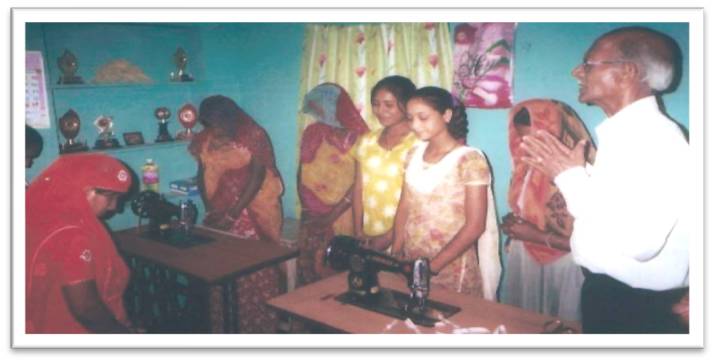Kuta Beach in Indonesien: Hierhin zieht es Frauen aus aller Welt. Die meisten kommen alleine - im Wissen, dass sie es nicht lange bleiben. Ihre Verehrer sind junge Balinesen, Beach Boys genannt, für die das Leben ohne die Devisen der Frauen hart wäre. Reportage über Sex-Tourismus zwischen erster und dritter Welt – mit umgekehrten Vorzeichen...
Das witzige daran finde ich gerade, dass ich kürzlich per Zufall in einem Blog einer jungen Rucksack-Touristin gelandet bin, welche sich in Sihanoukville in einen einheimischen Boy "verliebt" hat.
Sie beschreibt alles wunderbar - wie toll es war und wie tränenreich der Abschied. Natürlich unterstützt sie ihren armen Khmer-Boy nun finanziell......ist doch ganz normal - siehe Video.Dazu ein Artikel von Laura Agustín on Migration, Trafficking and Sex
Sweatshop jobs or sex work in Cambodia: Rescue Industry fails to understand
Is buying sex a better way to help Cambodian women than buying a T-shirt? reads the subtitle of an article in Slate. I don’t think we need to generalise about all sex jobs or all jobs in clothing factories/sweatshops, but given the Rescue Industry’s obsession with getting people out of sex and into other work, it is always good to see information showing it’s not that simple. By which I mean that finding alternative jobs that are actually satisfactory to people is not easy and neither is helping them. Helping people is not only difficult but meaningless unless there is an understanding of what people want themselves.
Moral crusaders intent on saving people from sex work rarely engage with the enormous subject of what activity will provide income instead and how. The present worldwide craze assumes that any job will be better – meaning more dignified, fulfilling, heartwarming – than any sex job. Alternative occupations offered, however, are universally gender-stereotyped for women who are assumed to be traditionally feminine and domestic. Aid organisations and rescue projects relentlessly treat women in poorer countries like backward children and still call attempts to help them out of selling sex rehabilitation. The photo at the top illustrates a nearly universal association of sewing with obedient, meek women, but organised sex workers have specifically addressed the sewing-machine cliché in protests, as shown below.
It is true that a lot of people who sell sex wish they could do something else instead, the way probably most of the planet does. We fall into jobs by chance, or because someone told us they would be good for us, or because we studied some skill and then felt we had to use it even if we don’t enjoy it much. We stay in jobs because we don’t find another better one, and nowadays we are afraid to lose even the worst of jobs.
These excerpts from the conclusion of Ken Silverstein’s A Brief Tour of the Cambodian Sex Industry (Slate, 19 May 2011) demonstrate the problem of assuming a job making clothing is always better than sex work. Note: apparel means clothing in the US.
. . . 20 percent of Cambodian sex workers interviewed for the 2009 U.N. report said they took their jobs because of good working conditions or relatively high pay. (Fifty-five percent did so due to “difficult family circumstances.” About 3.5 percent were lured, cheated, or sold into sex work.)
Are sex workers exploited? Absolutely. But so are textile workers. When I was in Cambodia in 2009 to report on the apparel industry, I obtained the “company profile” of a firm that produced T-shirts, trousers, and skirts for companies like Aeropostale and JCPenney. It said the plant’s 1,000 workers produced 7.8 million pieces annually. Taking a rough estimate of $25 per piece retail, each employee generated approximately $195,000 in retail sales annually, for which she received about $750 in pay, factoring in typical overtime rates.
“A lot of women no longer want apparel jobs,” Tola Moeun, a labor-rights activist with a group called the Community Legal Education Center, told me. “When prostitution offers a better life, our factory owners need to think about more than their profit margins.” 19 May 2011, Slate


3 Kommentare:
Zum Thema Frauen & Sextourismus ist dieses Forum hier sehr lesenswert. Liebeskasperfieber (LKS) kann auch die Damenwelt treffen: http://forum.1001geschichte.de/
Oh Mann, nun weiss ich endlich das die Länge nicht wichtig ist!
Bisher dachte ich schon, da ja anfangs die Frauen immer nach Jamaika in den Urlaub sind, lang wäre doch wichtig.
Der Schniedel der Indonesier, ist aber laut Statistik gute 6cm kürzer, somit kann die Länge also doch nicht so wichtig sein. Im VDO sieht man ja auch fette Frauen bei denen scheint es sogar noch möglich zu sein, genug Freuden zu spenden. Gruss Peter
"Und wieder haben wir eine typische Bezness-Geschichte mit einem Marokkaner.
Auch dieser Mann war nur auf seine Vorteile bedacht und nutzte die Liebe von witchy gnadenlos aus."
Super Tipp die Seite, schnell was zu knabbern geholt, Eistee steht schon bereit....
Kommentar veröffentlichen